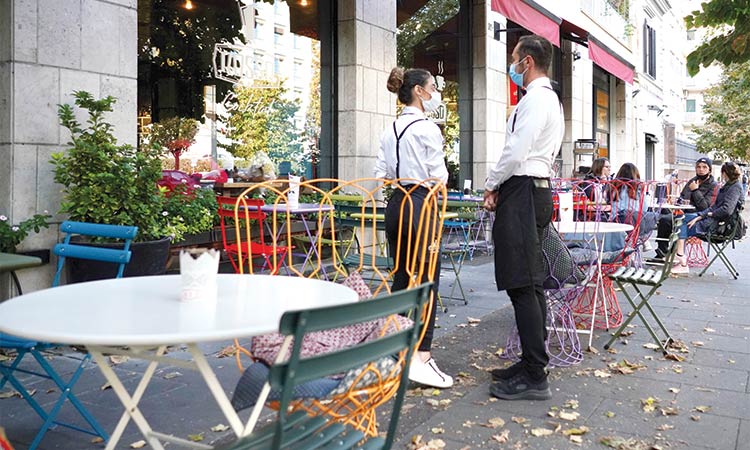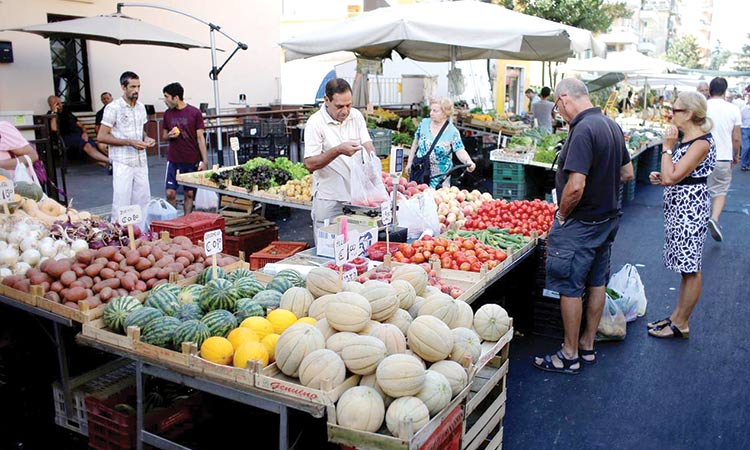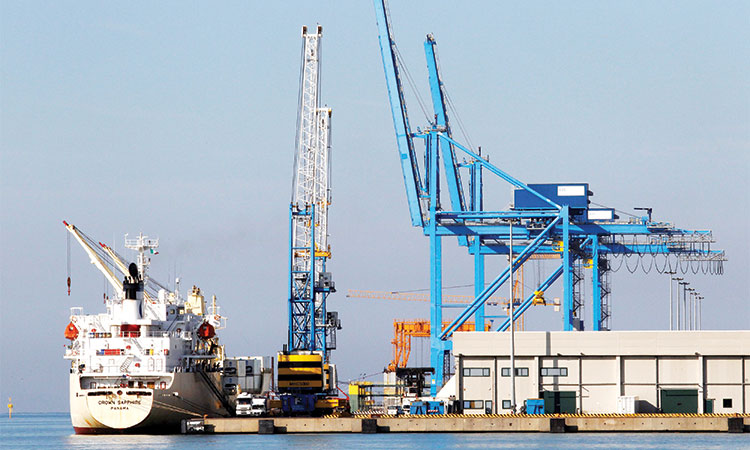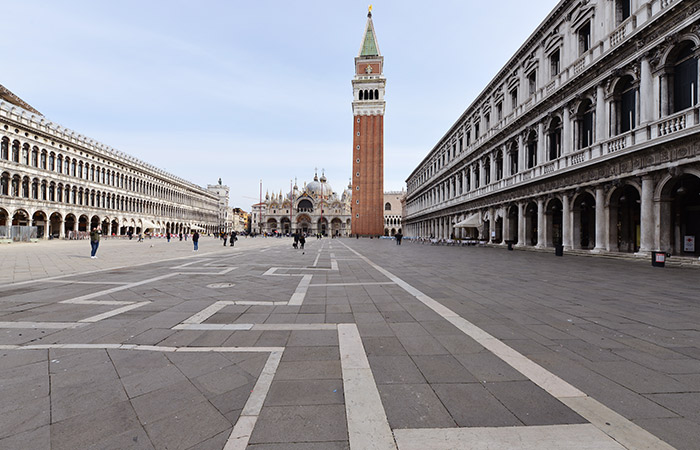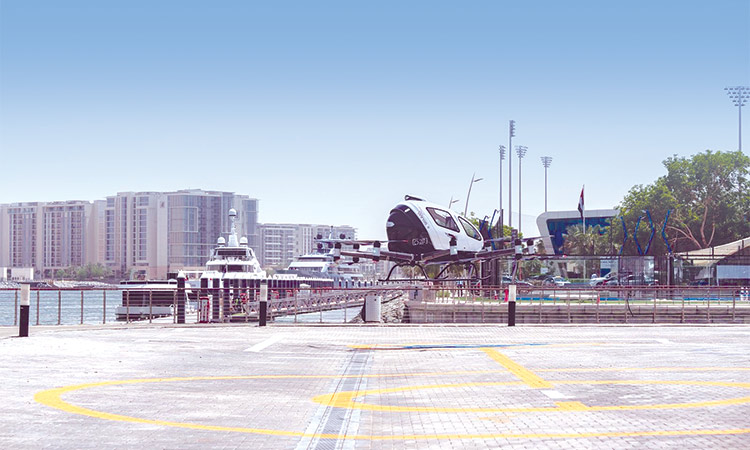Italy business, consumer morale rise in June after May’s trough
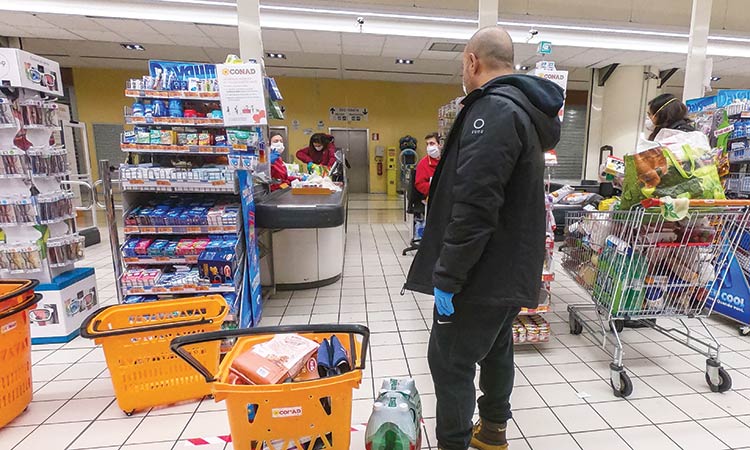
Customers at the cash counter of a supermarket in Rome, Italy. Agence France-Presse
National statistics institute ISTAT’s manufacturing confidence index increased to 79.8 in June from 71.5 in May, still far below its long-term average as the economy continues to struggle due to the coronavirus.
ISTAT, which did not conduct its survey in April because of technical difficulties connected to a government lockdown, said June showed “the first signs of recovery after the record fall registered in previous months.”
June’s manufacturing confidence index was marginally below a median forecast of 80.0 in a Reuters survey of 10 analysts.
ISTAT’s composite business morale index, combining surveys of the manufacturing, retail, construction and services sectors, came in at 65.4 in June, compared with May’s multi-year low of 52.7.
Consumer confidence rose more than expected this month to 100.6 from 94.3 in May, beating a median forecast of 97.5 in Reuters’ poll.
More than 34,000 people have died of the coronavirus in Italy since its outbreak emerged on Feb. 21, the fourth largest toll in the world after those of the United States, Brazil and Britain.
The euro zone’s third largest economy shrank 5.3% in the first quarter from the previous three months, the steepest decline since since the current series began in 1995.
Italy’s official forecast is for a full-year drop in gross domestic product of 8% this year, but most think-tanks expect a steeper contraction and Economy Minister Roberto Gualtieri has said the government’s estimate will probably have to be revised lower.
The Bank of Italy has forecast -9.2%, the European Commission -9.5% and the International Monetary Fund -12.8%
Italy’s public budget deficit widened sharply in the first quarter of this year to 10.8% of gross domestic product, compared with 7.1% in the same period of 2019, official statistics agency ISTAT said on Friday.
The higher deficit was due to both an increase in spending, which climbed 3.8% year-on-year, and a reduction of revenues, which fell 3.6%, ISTAT said. The deficit was pushed up by the government’s first stimulus measures to support firms and families in the face of a severe outbreak of the coronavirus which came to light on Feb. 21, the statistics bureau said.
Following a raft of new spending measures, Italy has set an official target of a 2020 deficit of 10.4% of GDP, up from just 1.6% registered in 2019. ISTAT gave the following quarterly public finance data. All data are expressed as a per cent of gross domestic product.
Meanwhile, Italy’s artisans anxious as brands haggle to bridge luxury gap. With unsold luxury handbags and clothing gathering dust in their workshops, Italy’s artisans fear for their future as brands cut orders and in some cases demand discounts and payment delays.
Italy accounts for around 40% of global luxury goods manufacturing and has been hit hard by a dramatic drop in demand triggered by the coronavirus crisis, with several artisans saying they have no new orders beyond the summer.
German fashion group Hugo Boss and Italian company Max Mara both wrote in May seeking price reductions on existing orders of 8% and 7% respectively, suppliers told Reuters, which also saw emails detailing the requests.
This illustrates how some mid-size luxury brands are attempting to protect their margins to make up for sales lost during weeks of lockdowns. “Everybody is affected and has to take actions to have the possibility to come through the crisis and to survive,” Markus Knisel, Hugo Boss’s senior head of procurement for menswear, said in one email seen by Reuters.
Hugo Boss and Knisel did not respond to requests for comment. A spokesman for Max Mara declined to comment.
Reuters spoke to half a dozen Italian artisans supplying top luxury brands who said they had seen a cut in orders of between 20% and 50% in May and June compared with last year.
Hugo Boss has also asked for payments to be delayed to 120 days after delivery, from 10 days in normal times, one of the group’s Italian suppliers, who asked not to be named, said.
Production cuts and price negotiations now threaten the survival of thousands of small and medium artisan workshops tanning leather, sewing handbags and shoes and weaving fabrics.
“If things don’t go back to normal in the next couple of months, the worry is that from September onwards the situation will deteriorate further and that many luxury suppliers, particularly the smaller ones, will go bust,” David Rulli, head of fashion at business lobby Confindustria in Florence, said.
Reuters
